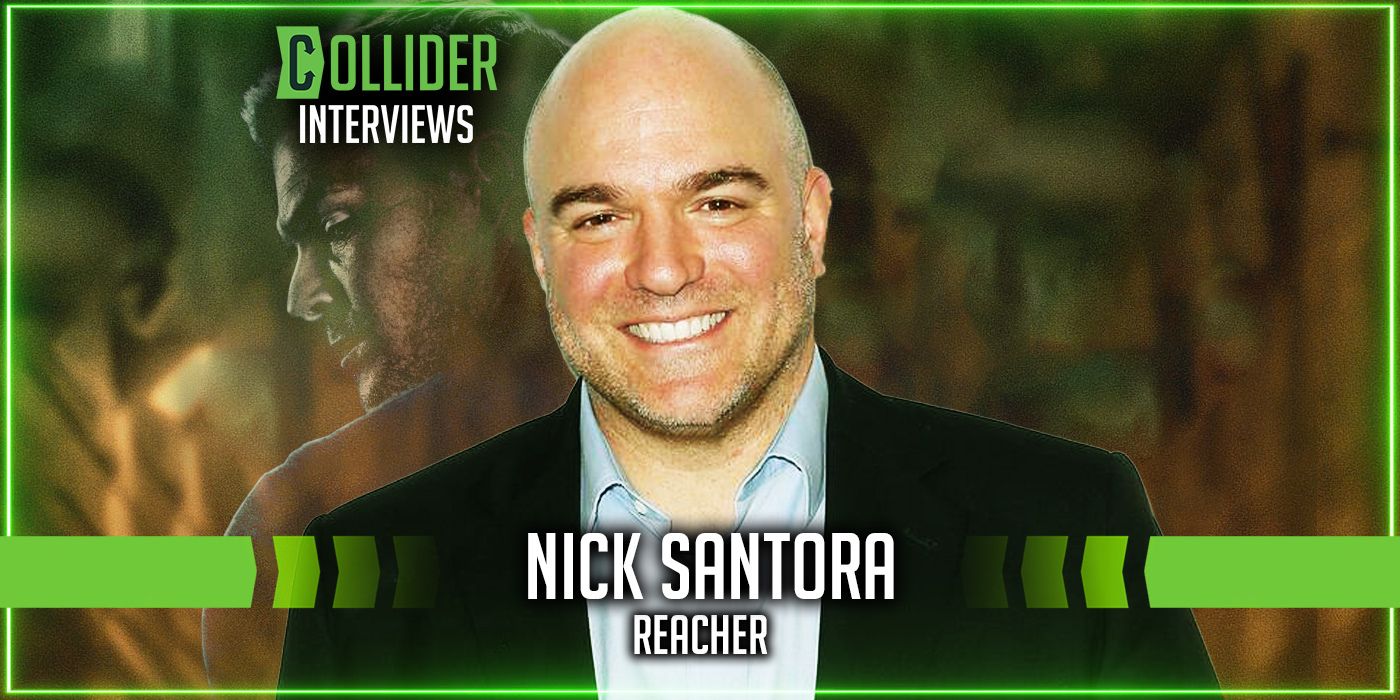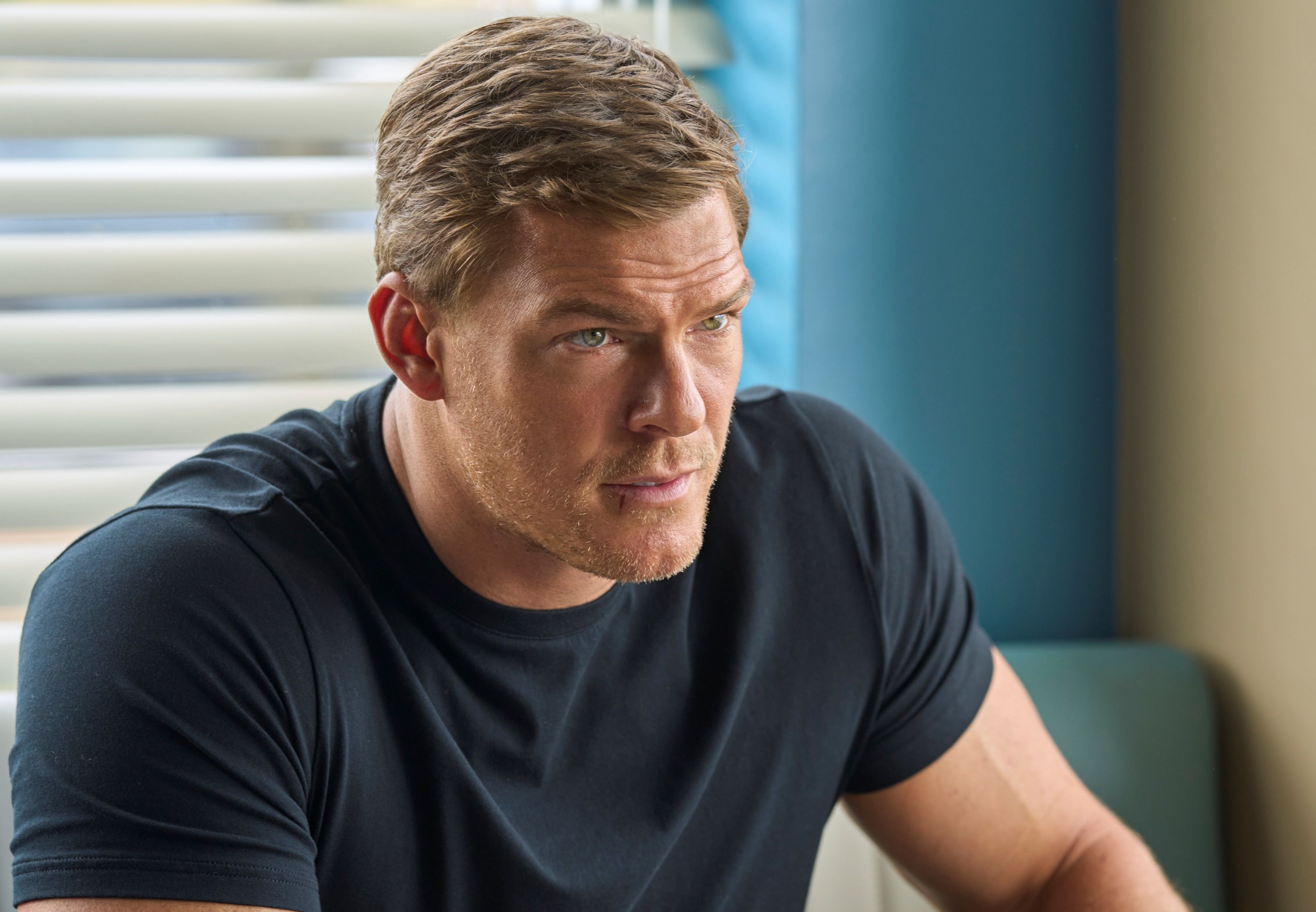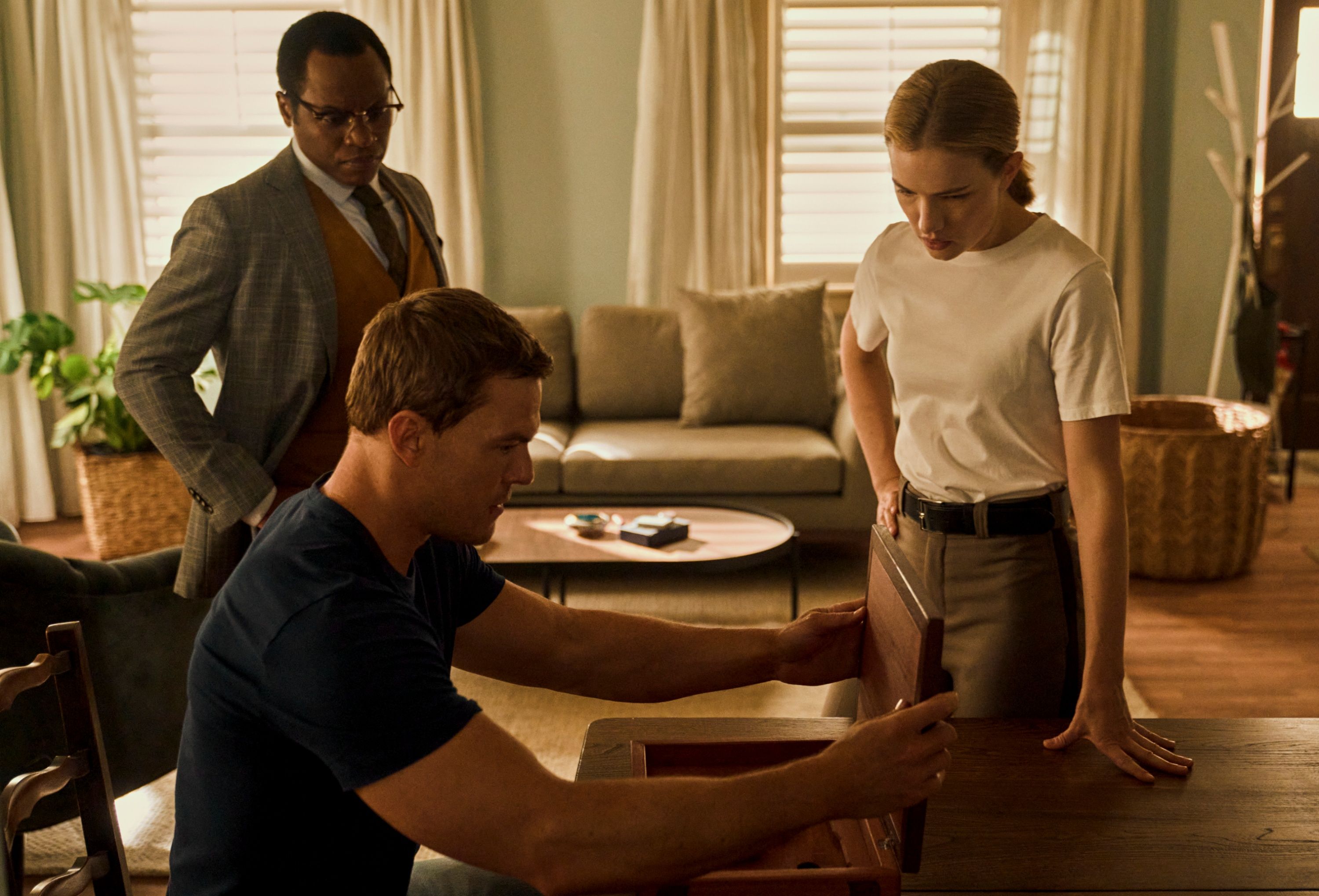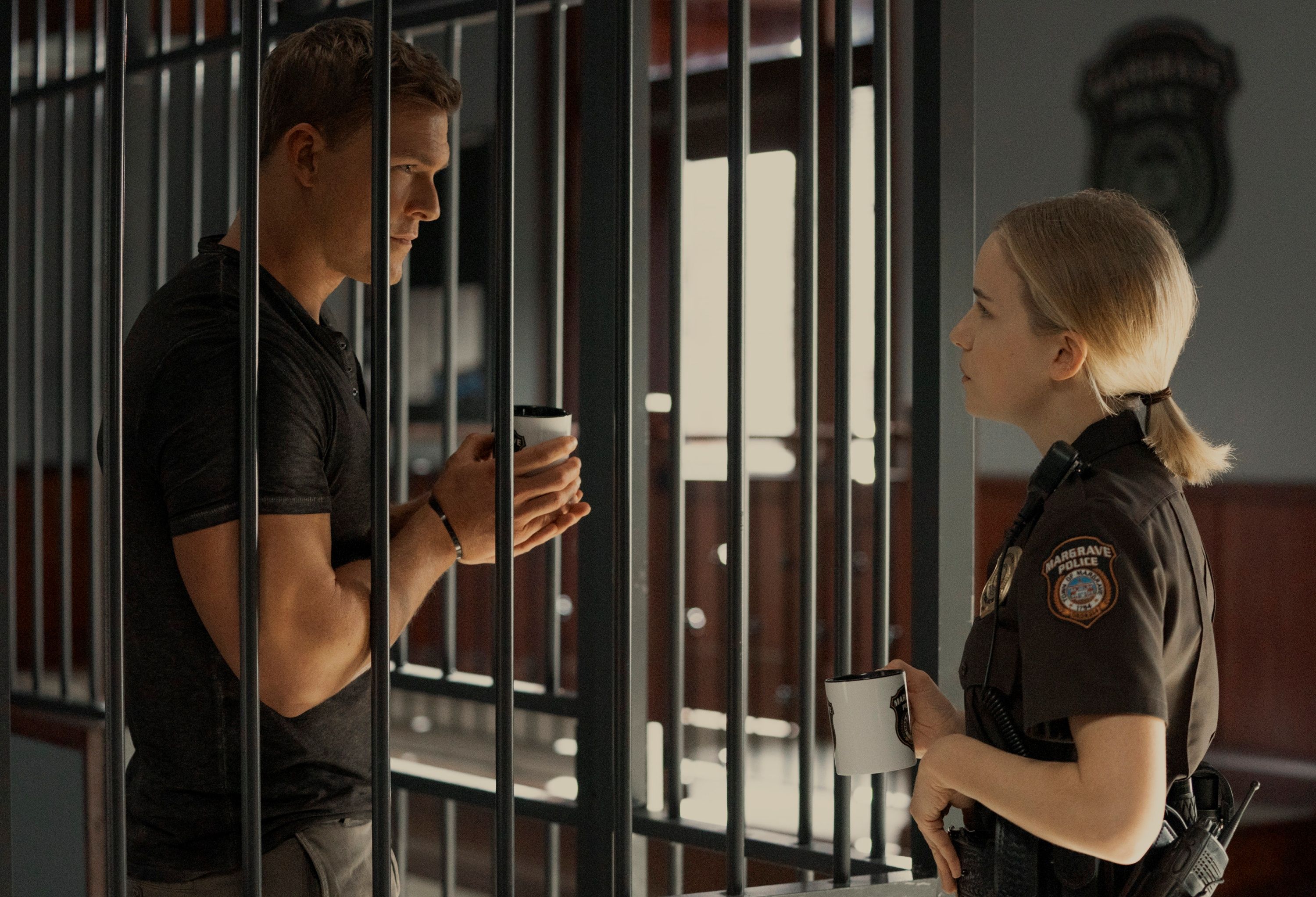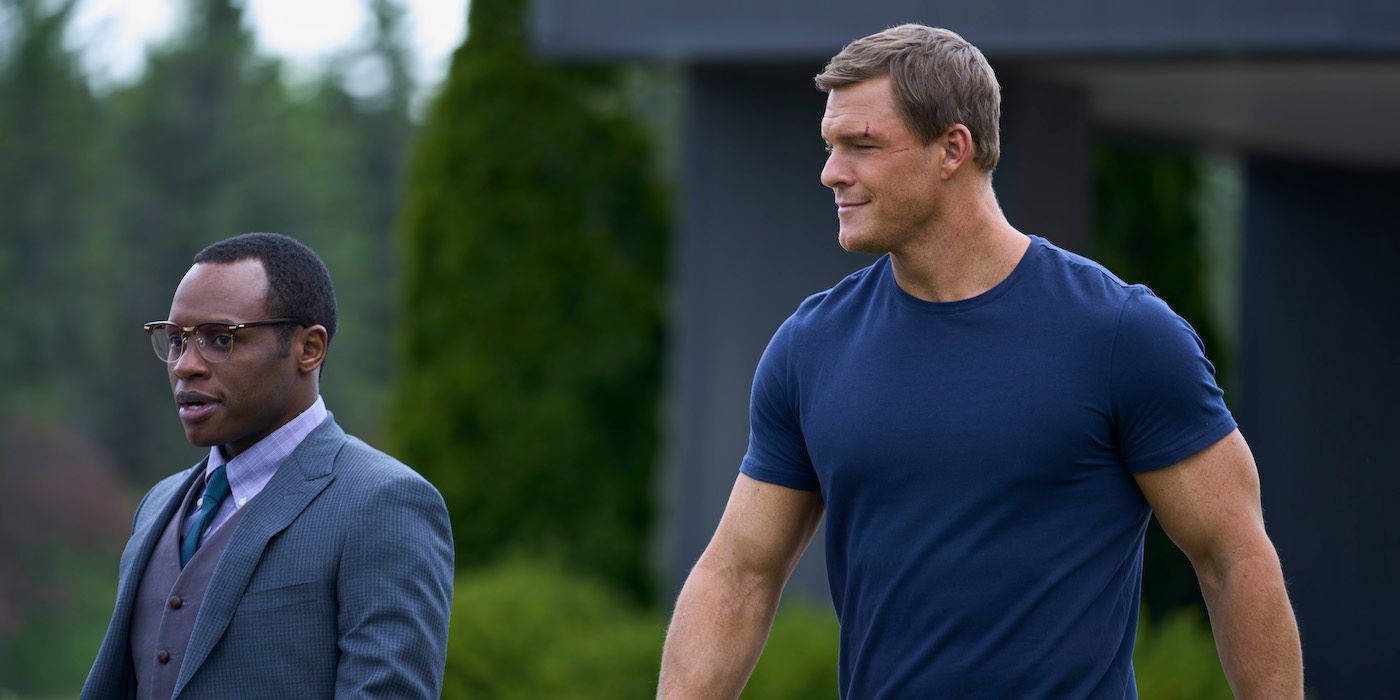From showrunner Nick Santora (Scorpion, Prison Break) and based on Lee Child’s first Jack Reacher novel Killing Floor, Season 1 of the Prime Video series Reacher follows veteran military police investigator Jack Reacher (Alan Ritchson), a man as intimidating as he is tall. Although he appears to be a mysterious drifter when he shows up in the small town of Margrave, Georgia, bodies start gruesomely piling up and a conspiracy emerges that not only puts him directly in the crosshairs but also makes him easy to point the finger at, leaving him wondering who he can trust and how he can prove his innocence.
During this 1-on-1 interview with Collider, executive producer/writer Santora talked about auditioning to run this show, what the pitching process was like, why this was a story that appealed to him, whether they’re looking to following a book per season (the series has already been picked up for a second season), how everything they do on the show gets the stamp of approval from Child, finding the right actor for the title character, and weaving the humor into a sometimes dark story.
Collider: I personally love that in this show Jack Reacher says, “Tall people never have enough room for their feet.” As a six-foot-tall woman, I would like to thank you for speaking that truth because it is rare that someone recognizes the struggles of tall people.
NICK SANTORA: Of course. We all have our burdens to bear.
It made me laugh. I was not expecting that. How did you end up doing this as a TV series? Was it something that you sought out? Was the idea of turning this character into a TV series something that was brought to you?
SANTORA: I was aware of the Reacher book series and had read Reacher books because who hasn’t? It was a matter of the studio owning the rights to the series and looking for someone to do it, and I’d be crazy to not throw my hat in the ring and try to land the job. Like any actor auditions for a role, I auditioned for the role. I had a bunch of meetings and had to keep going back because obviously, it’s an important title to the studio. Luckily, they picked me.
We only ever hear about what an actor goes through in the auditioning process. What is it like to have to go through that? Are there moments where you question whether you ever should have considered doing it? How does that work for you, personally?
SANTORA: The process is different every time, whenever you try to land a job. This process was pretty painless. All the credit for that goes to Skydance. The producer on the project, Don Granger, was an incredible gentleman and very supportive of me for this job. And Dana Goldberg at Skydance was really wonderful. Everyone there was really wonderful. I just kept going back, and every time I went back, we seemed to click a little bit more and a little bit more. And then, they finally said, “All right, figure out how to tell this book in this season of television because we’re gonna go try to sell it.” Then, the real hard work started.
Obviously, it’s nice to take on a project when you have these books that are popular, there’s 26 of them now, so you know you won’t run out of material, and you know that there’s a fan base there, but at the same time, you don’t want to spend all of your time and effort and other people’s money, making a show that you don’t connect with. What was it about the character that you found a connection to, that made you want to tell the story?
SANTORA: It’s funny, it’s gonna make me sound like an idiot, but I think it’s Reacher’s approach to clothing. I totally get it. I just never, in my life, have cared what I wore. I’m very, very, very into efficiency. It’s almost a challenge for me. And Reacher’s very efficient with words. He doesn’t talk unless it’s necessary. He’s very efficient in his approach to life. I have these clothes and I’ll wear them for three days. I’ll go to a thrift shop to get more clothes. I’ve been buying my t-shirts from thrift shops for decades. I just really connected with Reacher’s approach to having a simple life. I also like that he tries to do good, if he sees someone beating up someone smaller than them in a parking lot. He probably would rather not necessarily want to get involved, but he’s gonna go break it up. I’m not gonna do that, necessarily. I like people that try to do good things, and I think Reacher is a good person.
At the same time, because you can’t have a TV show with a main character who never speaks, did you have to find a balance between getting him to speak a little bit more and being true to the character?
SANTORA: Yeah. That was the biggest challenge. So much of what goes on in the book is what Reacher is thinking in his head. In the writing process, it was just a matter of figuring out how Reacher could say what he was thinking without getting verbose and what he was feeling without getting too wordy. Nothing is better for a writer than to figure out how to say something just as good, but in fewer words, so I enjoyed the challenge. I know the writing staff enjoyed the challenge as well. We have Lee Child’s books to work off of, so we have a really great foundation. It’s not too hard to get it done. Lee’s really done all the hard work.
You take on the first book for the first season. Is that a format you’re looking to follow? Would the second season be the second book? Would you go in order, until you get to 26 seasons of the show?
SANTORA: It will be a conversation. Everything’s a conversation on this show, and I mean that in the best of terms. We have a studio, we have a network, and we have producers, but Lee Child is the Grand Poobah of this project. If Lee doesn’t like something, I’m not doing it. So, everything will be a discussion. I don’t know if we’ll go in order. We’ll see how it plays out.
Part of why I asked that is because, when you have such great characters like Finlay (Malcolm Goodwin) and Roscoe (Willa Fitzgerald), do you try to find a way to bring them back into the series? You can’t just say goodbye and that’s it, and we never see them again.
SANTORA: I love the characters of Finlay and Roscoe. If there was a way to organically have them somehow pop in once in a while into Reacher’s life, wonderful. But we’re not gonna force anything and we’re not gonna do anything that messes up the lore of Reacher. Reacher can’t run around the country with his rag-tag team of crime fighters. That’s not Jack Reacher. I know, for a fact, that Lee Child would say, “Nope,” and I would say nope too. We have to be honest to the book series.
And there’s only so many bad things you can do to one town.
SANTORA: That’s true too.
You said that you had Lee Child there to make sure that everything about Reacher and the story was how he wanted it. Is that something of a blessing and a curse? Were you ever worried about what you would do, if you really loved something that he wasn’t into?
SANTORA: No. I worry about that on other shows that I make because those are my creations, if they’re not adaptations. If I create a show from whole cloth and I say, “The character wears a blue hat,” and someone says, “Maybe it should be purple,” then I’ll sometimes get my back up and say, “No, this character wears this color hat because I created the character.” But with Lee Child, I am absolutely in the backseat for this ride, and I’m not saying that in a negative way. I intentionally, from the beginning, said to Lee, “What’s driving this car is what you created. I’m not doing anything, if you say it doesn’t organically work with Reacher.” If I come up with an idea that I really like and Lee says, “That doesn’t work,” then all that means is that my idea was wrong and I have to come up with something else. If Lee says it doesn’t work, that’s an objective fact. That’s not subjective. Lee knows what Reacher is. It actually frees me up. It takes away the angst that a writer might normally have. I can just say, “Oh, easy, Lee says it doesn’t work, so throw it out and move on.”
Was it challenging to find the right Roscoe? That character has to get through to Reacher in a way that other people don’t, but also earn his respect and become something of a romantic interest. Was it hard to find someone who wouldn’t be engulfed or look intimidated by someone of his size?
SANTORA: It was hard on paper, and then very easy when we saw Willa’s audition. As soon as I saw Willa, I was pretty positive that she was gonna be Roscoe. I wanna stress that other actors that auditioned for the role were incredible, so to win the role, you had to really, really be perfect for it. Willa just jumped off the screen, and you saw the chemistry with Alan [Ritchson]. It was wonderful. When you look at this cast, everyone hit the mark. We don’t have any weak links in the chain. There isn’t an actor in this show that I would recast.
I love the odd buddy duo of Finlay and Reacher. What did you most enjoy about that dynamic and about watching them together?
SANTORA: It’s the odd couple. That was a lot of fun for me. I’ve worked with Malcolm Goodwin many times before. He’s a brilliant actor. The hardest thing with Malcolm is that I had to tell him, “Malcolm, you’ve gotta get in less shape. Reacher is in phenomenal shape and we can’t have two Reachers.” Malcolm is pretty ripped and muscular. He said to me, “I’m not lifting any weights. I’m done working out. I’m gonna eat some pie.” Other than that, it was really easy. Those two were great together, and I was so happy that they clicked the way they did.
It sounds like it took a little bit of time for the casting to find the right Jack Reacher. Alan Ritchson didn’t originally get the role, and was cast when it came back around and he was asked to come back in. What was this casting process like? Was it just a hard character to cast, after people had so many opinions about Tom Cruise doing the role?
SANTORA: It’s a hard character cast. Don Granger, a producer on this project, says it all the time, “Lee Child wrote a character that doesn’t exist in the real world.” He’s the biggest person in the world. He’s the smartest person in the world. He can be incredibly brave, incredibly smart, and incredibly funny. I’ve never met that person in the real world, so it was a hard casting process. We saw a handful of incredibly talented actors for Reacher. We saw Alan read and we kept looking, but he was always there, in our database. We eventually went back and said, “Let’s look at Alan again.” The actors that auditioned for this role were so good that kudos to Alan for landing the role. He didn’t win it over amateurs. He won it over really talented, seasoned actors.
Did you have a moment, seeing Alan Ritchson in the character, where you could breathe the sigh of relief because you knew you really had the right guy?
SANTORA: Yeah, when we were doing screen tests with Roscoes. That’s when I could sleep at night. I’ve never once lost a minute of sleep or had a moment of stress about any of our cast. We just had incredibly talented people. I had two sighs of relief during the screen test – one when I knew he was Reacher, and the other that he’s so polite and respectful with the other actors that I said, “I’m not gonna have a jerk who’s number one on the call sheet. I have a nice human being who’s number one on the call sheet.” That sets the tone for everyone on a set. Alan set a tone of being polite and being respectful, and that just makes everyone’s job easier.
One of the most surprising things about this show is its humor. I was not expecting it to be as funny as it is. I totally was not expecting to laugh out loud more than I have at some of the comedies I’ve seen recently. Is that something that comes from the books? Is it hard to balance horrible things going on and murder with humor?
SANTORA: No. I’ve always, in my career, probably up until this show, always had to fight, on almost every show I’ve been on, with executives at some point, who would give me notes and say, “Why are they cracking jokes during a very dark time?,” or “Why are you going for a laugh when they’re running from danger?” From Prison Break to Scorpion, to a million other shows I’ve done, I’ve always had to have that battle. I was raised on Midnight Run, Beverly Hills Cop, and 48 Hours. Those are movies that are hysterical, but also have real danger, real shootouts, and real drama. When I got to Reacher, they got it right away. The studio and the network got it right away. They were like, “This doesn’t take us out of the tone of the show. This is the tone of the show.” Every once in a while, Reacher, who’s very direct, very blunt, and very dry is funny at times. I’m not gonna give Reacher a knock-knock joke, but Reacher can be funny, in and of himself, and situations can be funny, in and of themselves. The studio and the network got that right away. They understood.
I even appreciate that you have a running joke for an entire season about peach pie. Loving a good fruit pie, in my case cherry, speaks to my heart.
SANTORA: Listen, I love a good pie too, so I get it.
Reacher is available to stream at Prime Video.

